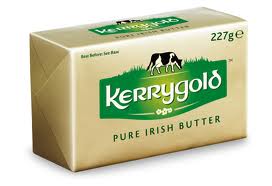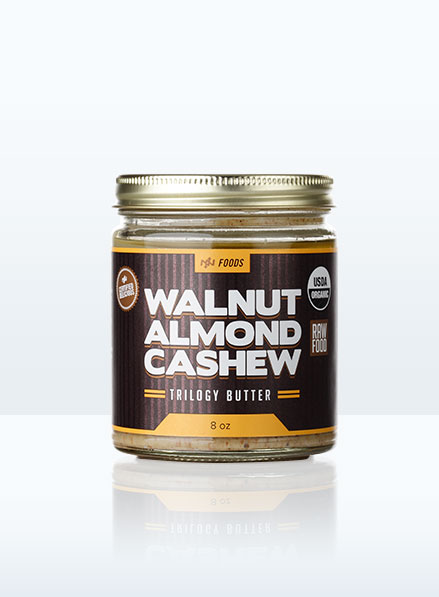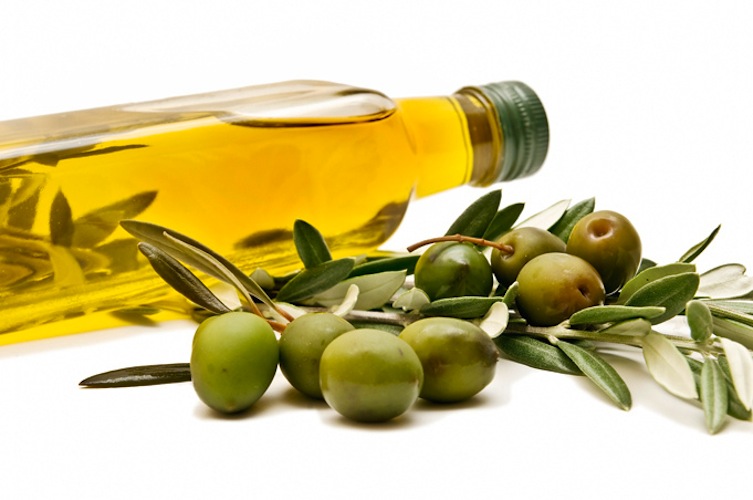Since I first began my Paleo diet many people have asked me what exactly can they eat? Well, the answer is actually fairly simple. Eat anything that comes from the earth. But, to give you a better understanding of it I'll give you a quote from the man I learned from, "The Paleo diet is the healthiest way you can eat because it is the only nutritional approach that works with your genetics to help you stay lean, strong and energetic! Research in biology, biochemistry, Ophthalmology, Dermatology and many other disciplines indicate that our modern diet, full of refined foods, trans fats and sugar, that is at the root of degenerative diseases such as obesity, cancer, diabetes, heart disease, Parkinson's, Alzheimer's, depression and infertility. - Robb Wolf"
Here is an index of the Good and the Bad
Good Foods
- Proteins (Chicken, Beef, Pork, etc.) Chicken and pork should be free range, Beef should be grass-fed or at least organic
- Vegetables (Kale, Spinach, Cucumber, Celery, Broccoli, etc. ) Organic is a plus but conventional grown isn’t the end of the world.
- Fruits (Apple, Açai, Coconut, Kiwi, Banana, etc.) Fruits are high in sugar (glucose) avoid if weight-loss is your main goal, if not fruit is great for the recovery process for athletes.
- Nuts & Berries (Almonds, Walnuts, Cashews, Blueberries, Raspberries, Cranberries) Nuts are high in Saturated Fat and a great way to get a kick of energy and protein.
- Fats (Coconut oil, Olive Oil, Ghee, Grass-fed Butter, Flex seed oil) Fats are our body’s cleanest source of energy. You cannot lose fat unless you eat it.
- Grains (yes even whole grains, bread, pasta, etc) Phytates, Gluten, Lectins
- Potatoes (starches) dietary starch, which can wreak havoc on the insulin resistant
- Legumes (beans, peanuts, etc.) Legumes contain phytates, which helps prevent minerals in a particular food from being absorbed. Lessening our foods bioavailability.
- Pasteurized Dairy (Milk, cheese, yogurt, etc.) Raw dairy like raw grass-fed milk is great for you. When milk is pasteurized important protein and digestive enzymes are destroyed in the heating process
- Processed Food (If it takes more than 5 seconds to read the ingredients, don’t eat it) If it says fat free, calorie free, light/lite or anything along those lines; it means chemical shit storm
- Table Salt table salt if devoid of minerals and only dries you out and slows bodily functions. Salt is good for you but table salt is not.
- Refined sugar this will spike the insulin levels in our blood stream. Refined sugars confuse our bodies, cause weight gain and almost every health problem you can imagine.
- Gluten many studies have found strong statistical associations between gluten, celiac disease and various other autoimmune diseases and inflammation
Paleo Meats
- Poultry
- Turkey
- Chicken Breast
- Pork Tenderloin
- Pork Chops
- Steak
- Veal
- Bacon (oh yeah)
- Pork
- Organic Ground Beef
- Grass Fed Beef
- Chicken Thigh
- Chicken Leg
- Chicken Wings
- Lamb rack
- Grass-fed/Organic Beef ribs
- Free-range pork ribs
- Eggs (all kinds)
- Boar
- Venison
- Venison Steaks
- New York Steak
- Bison Steaks
- Bison Jerky
- Bison Ribeye
- Bison Sirloin
- Lamb Chops
- Rabbit
- Goat
- Elk
- Goose
- Bear
- Beef Jerky
- Eggs (duck, chicken or goose)
- Wild Boar
- Ostrich
- Pheasant
- Quail
- Lean Veal
- Chuck Steak
- Chicken Wings
- Lamb rack
- Grass-fed/Organic Beef ribs
- Free-range pork ribs
- Eggs (all kinds)
- Boar
Grass-fed Beef
The best meats to eat are those that are grass-fed or lean. The worst are highly processed meats such as, spam, hot dogs, low-quality meats, etc. Now, why is grass-fed (in terms of beef) important? Well, first let me just state chicken and pork do not need to be grass-fed because they are omnivores (like us, they can eat anything) but it is important that your pork and chicken are free-range. Now, lets get to the beef.
Grass-fed Beef
- Leaner and Juicer (grass gives cows higher moisture in the meat)
- Cows are natural grazers
- Higher bioavailability
- Rich in Omega-3, vitamin B6 and beta-carotene
- Has fewer calories than grain-fed
- Helps to lower cholesterol
- Animals lead happy, healthy, natural lives
Now, lets look at non-grass-fed
Grain-fed Beef
- Not juicy but tougher
- Higher cholesterol
- Animals become sick from unhealthy/unnatural diet of grains
- Pumped full of antibiotics and hormones
- Animals tend to lead unhappy/unhealthy lives
I do understand that not everyone can get grass-fed beef, so here is some advice if you happen to LOVE beef but cannot get grass-fed
- Eat organic beef with no hormones or antibiotics
- Get cuts of beef with least amount of fat
- Just avoid factory farmed meat it is simply not good for you
If you find grass-fed beef, get the cuts that are the deepest red and have a nice marble ratio of fat to meat. It is 100% healthy to eat grass-fed beef fat. If you can’t get grass-fed, get cuts with minimal fat and try to avoid it. There tends to be labels on food stating it is either organic hormone/antibiotic free, or grass-fed. So be sure to keep an eye out.
Seafood
- Shrimp
- Lobster
- Clams
- Salmon
- Muscles
- Oysters
- Tuna
- Swordfish
- Bass
- Halibut
- Mackerel
- Sardines
- Tuna
- Red Snapper
- Shark
- Sunfish
- Tilapia
- Trout
- Walleye
- Crab
- Crawfish
- Scallops
Vegetables
- Avocado
- Artichoke hearts
- Brussels sprouts
- Carrots
- Spinach
- Kale
- Celery
- Broccoli
- Zucchini
- Cabbage
- Peppers (All Kinds)
- Cauliflower
- Parsley
- Eggplant
- Onions
- Butternut Squash
- Acorn Squash
- Yams
- Sweet Potato
- Beets
- Asparagus

Fruits
- Apple
- Blackberries
- Papaya
- Coconut
- Peaches
- Plums
- Mango
- Lychee
- Blueberries
- Grapes
- Lemon
- Strawberries
- Watermelon
- Pineapple Guava
- Lime
- Raspberries
- Cantaloupe
- Tangerine
- Figs
- Oranges
- Bananas
Nuts
- Almonds
- Walnuts
- Cashews
- Hazelnuts
- Pecans
- Pine Nuts
- Pumpkin Seeds
- Sunflower Seeds
- Macadamia Nut
Fats
- Olive Oil
- Free range Lard
- Coconut Oil
- Ghee
- Grass-fed butter
- Hemp seed oil
I am quite sure I missed plenty of other foods in each category. The point of those exhaustive lists is this; there are plenty of paleo foods to eat! It is by no means hard to get these kinds of foods.
- Now, you may be thinking wow this is a lot of fat. Won’t I get fat? Won’t my cholesterol go up? This can’t be healthy. Or can it? Lets just get this out of the way; Saturated fat is very healthy (we want to avoid trans fats). Saturated fat is actually great for you, it’s our body’s favorite way to fuel itself, it makes us feel full and satisfied, and guess what… saturated fat helps keep you lean, helps lower/level our cholesterol and helps prevent coronary heart disease.
- Lets get ready for some science. Now, bare with me and I promise all of this will soon make sense. A study from Stanford University put two diets to the test; one a low carb but high in fat and protein, and the other was low fat and high carb. The study concluded this: People who limited carb intake but ate as much fat and protein as they wanted lost more weight on average than those who avoided fats and increased carbs, suggesting fats do not make people fat, but rather carbs do.
But why, and how? Well here it is: Fat flows in and out of our cells constantly, but it’s fat that is stored in fat cells that make us fatter. We store fat in the form of triglycerides. Triglycerides are formed by 3 fatty acids bound by a single molecule of glycerol inside a fat cell. Triglycerides are too large to flow through the membranes of a fat cell, but fatty acids are able to flow freely. Still with me? Here is the simpler version:
What makes us fat?
· Anything that promotes the flow of fatty acids into your fat cells
What makes us leaner?
· Anything that helps to break down those triglycerides
Now, when carbs come into play it affects our insulin. Insulin is our body’s primary regulator of fat metabolism, it also the primary regulator of lipoprotein lipase (LPL) which sits on the membranes of cells and pull fat in the cell. So, the more insulin we secrete, the more active LPL is on our fat cells.
Simply put:
When insulin levels go up, we store fat. When insulin levels drop, we use that fat for fuel
Insulin levels in the bloodstream are primarily determined by the carbs we consume. It’s the quality and quantity of carbs that determine how much fat we accumulate. Basically, carbs drive insulin and insulin drives fat accumulation, meaning… Fats don’t make you fat - carbs do.
-Now, lets look at the best fat of all Saturated Fat:
Classification of Saturated fats
Saturated fats can be broken down into three categories: short, medium, and long chain fatty acids. The names refer to the length of the tail of the particular molecule.
Short chain fatty acids
 - The most common short chain fatty acids are butyric and caproic acids, which are found in grass-fed dairy products. GRASS-FED BUTTER!
- The most common short chain fatty acids are butyric and caproic acids, which are found in grass-fed dairy products. GRASS-FED BUTTER!
- Short chain fatty acids aid in "gut health" by providing energy for colonic epithelial cells and promoting the growth of healthy colonic epithelium (an unhealthy digestive tract has been linked to depression, anxiety , and a lowered immune system response). Short chain fatty acids have also shown to have anti-inflammatory properties.
Medium chain fatty acids
 - There are three medium chain fatty acids: caprylic, capric and lauric acids (which can be found in coconut oil and palm oil).
- There are three medium chain fatty acids: caprylic, capric and lauric acids (which can be found in coconut oil and palm oil).
- These are the best fats for clean energy, when olive oil was replaced with MCT oil, subjects who consumed MCT oil lost more weight. MCT oil, which is known to induce a ketogenic state (Ketosis is a state at which the body has an extremely high fat-burning rate. Even the brain runs on fat, via ketone bodies.)
- This is why I drink my coffee with grass-fed butter, MCT oil or coconut oil! Trust me, try it and you will know what I am talking about.
Coffee with 1-2 tablespoon of unsalted grass-fed butter and 1-2 tbsp. MCT oil and you will feel it immediately. (GoBulletproof!) http://www.bulletproofexec.com/category/coffee-2/
Long chain fatty acids
- Certain long chain fatty acids can contribute to cardiovascular disease, while others have been shown to be neutral or benign. Unfortunately, many people are apt to consume too many of the unhealthy long chain saturated fatty acids on a daily basis. The long chain fatty acids are myristic acid, palmitic acid, and stearic acid.
- Myristic acid and palmitic acid were compared in a study and shown to increase LDL cholesterol levels in test subjects. When LDL becomes oxidized it contributes to cardiovascular disease and metabolic syndrome. Myristic acid was found to have a more profound effect on cholesterol levels than palmitic acid. An interesting fact to keep in mind is that myristic acid is RARELY naturally occurring, but is more commonly and abundantly found in PROCCESSED FOODS!
- As previously mentioned, palmitic acid in isolation, does raise LDL levels. However, it is to a lesser extent than myristic acid. Linoleic acid (unsaturated fatty acid) has been implicated in lowering LDL levels and is commonly found in the same foods that contain palmitic acid; palm and coconut oil are great two examples.
- The sources of long chain fatty acids that should be avoided come from processed and factory farmed meats.
Special thanks to Steven Pressfield and his book ‘The War of Art’ because without his words of inspiration I would of never of found my inner creativity.
Sources:
- http://garytaubes.com/ author of “Why We Get Fat”
- http://nutrition.stanford.edu/projects/az.html
- The Paleo Solution by Robb Wolf
- http://ajcn.nutrition.org/content/80/5/1102.full
- Wong, Julia M.; de Souza, Russell; Kendall, Cyril W.; Emam, Azadeh; Jenkins, David J. (2006). "Colonic Health: Fermentation and Short Chain Fatty Acids". Journal of Clinical Gastroenterology 40 (3): 235-243.
- Vanhoutvin, SA; Troost, FJ; Hamer, HM; Lindsey, PJ; Koek, GH; Jonkers, DM; Kodde, A; Venema, K et al. (2009). "Butyrate-Induced Transcriptional Changes in Human Colonic Mucosa". In Bereswill, Stefan. PLoS ONE 4 (8): e6759
- Flight V. Evidence does not support saturated fats being harmful for cardiovascular health. J Prim Health Care. 2012
- Ravnskov U. The questionable role of saturated and polyunsaturated fatty acids in cardiovascular disease. J Clin Epidemiol.
- Patty W Siri-Tarino, Qi Sun, Frank B Hu, and Ronald M Krauss. Meta-analysis of prospective cohort studies evaluating the association of saturated fat with cardiovascular disease.







biochemistry ftw!
ReplyDelete